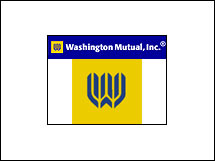|
WaMu and JPMorgan: A doable deal? A marriage between Citigroup and WaMu has long been rumored but JPMorgan may be better fit. NEW YORK (CNNMoney.com) -- Within the banking industry, Citigroup and Washington Mutual have often found their names linked as a potential marriage made in heaven if WaMu were to ever forgo its independence and put itself up for sale. But a recent report from research firm CreditSights said competitor JPMorgan Chase (Charts) is emerging as an even better banking partner for WaMu (Charts) over the next year given the company's higher stock valuation and the ability of JPMorgan CEO Jamie Dimon to appeal to the investing community.
CreditSights published its industry report last week, examining the benefits and pitfalls of potential M&A activity among some of the nation's largest banks, like Citigroup (Charts), JPMorgan and Wells Fargo (Charts). The report emphasized which deals would not only be the best strategic fit but would also result in the least amount of dilution for the acquiring bank. To that end, JPMorgan edged out Citigroup as a better buyer for WaMu. JPMorgan, which is trading at almost $47 a share, has a price-earnings multiple of 12.7-times forward looking earnings - higher than WaMu's 11.3-time multiple. According to the report, JPMorgan's current valuation would allow the company to "make a play for WaMu at a reasonable premium" and said a deal between the two companies would be the "most doable" banking merger. Assuming a 20 percent premium, CreditSights estimated that a deal between JPMorgan and WaMu would be 1 percent dilutive to JPMorgan's earnings in the first year, neutral to earnings by the second year and 2 percent accretive to earnings by year 3. Using that same scenario, Citigroup, with a weaker multiple of 11.5-times forward-looking earnings, could expect a WaMu deal to be 2 percent dilutive in the first year and only 1 percent accretive by the third year. And CreditSights added that JPMorgan's CEO Dimon also has more credibility with investors, who believe that he can successfully complete mergers on time and within budget. "The ability of Dimon to sweet-talk the equity base into warmly receiving the deal is a major positive for JPMorgan," the report said. Citi faces a tough sell Citigroup's CEO Chuck Prince, by comparison, has had a tougher time appealing to Wall Street as he worked to revamp Citigroup after former CEO Sanford Weill stepped down. The report said the market may react more negatively to any near-term earnings dilution from a deal between Citi and WaMu. But Citigroup does have an advantage over JPMorgan when it comes to merging with WaMu. Any banking mergers risk running into regulatory hurdles if the merged entity winds up having larger than a 10 percent share of deposits in the market. Citigroup, with its smaller national branch base, would have no trouble integrating WaMu's deposits within the 10 percent deposit cap. JPMorgan, however, would likely have to sell off some of its branches in order to get under the cap, the report said. But from a strategic standpoint, both Citi and JPMorgan are neck-and-neck when it comes to the benefits of courting WaMu, analysts said. For Citi and JPMorgan, WaMu represents an opportunity to gain access to a large deposit base and retail branches throughout the country, in some of the hottest markets such as California and Florida. And, theoretically, WaMu would benefit from being part of a larger, more diverse banking operation, especially as the mortgage market continues its downturn. That's already an area of concern for WaMu executives. At WaMu's recent investor day presentation in Seattle, the company's chief executive Kerry Killinger said he expects the housing market to be soft for some time. With interest rates on the rise, the company expects higher delinquencies and credit costs, he added. The company was a large player in the option-ARMs market, which became increasingly popular with the surge in the housing market. Option ARMs are an adjustable-rate mortgage that typically lets borrowers choose one of four different payments each month. Those who pay the minimum payment pay no principal, and less interest than what accrues on the loan - resulting in negative amortization over time. Dick Bove, an analyst at Punk, Ziegel and Co., said the market for exotic mortgages is still so new that no one can say with certainty what kind of losses WaMu could experience as customers begin to default on their mortgages. "They may have massive defaults," he said. "We're in an area of total experimentation and we don't know if we'll get a true economic setback." Any merger is iffy right now But are those concerns enough to convince Killinger to hand over the reins to Citi or JPMorgan? Not likely, analysts said. While CreditSights in its report laid out how a pairing may look between WaMu and JPMorgan or Citigroup, the company said there were no guarantees that a merger was in the works. "For two years, the market has been saying that they're going to do it but its obvious WaMu doesn't want to sell," Bove added. Bove said the company has worked hard to try to turn itself around. From hiring new staff to changing technology systems to acquiring Providian Financial last year in a bid to enter the credit card business, WaMu's actions hardly portend a sale. And to provide some cushion for the expected slump in the mortgage industry, WaMu executives said it was increasing its focus on retail banking, which now accounts for about two-thirds of its profit. "Lacking a really meaningful loss in its loan portfolio, there's no likelihood that WaMu's going to merge," Bove said. "The company has a tremendous amount of forward momentum in its operations." -------------------------------------------------------------------------- |
|

